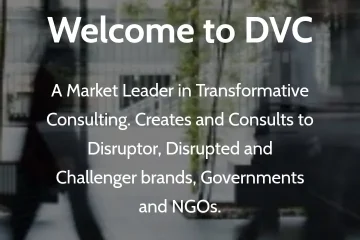At Agencio(agencio.ai), we are currently building a Global Brand Orchestration Platform (Bertha), to incorporate the APIs necessary for brand ideation/creation, development, and monitoring.
The platform is largely focused on providing in-house marketing teams the ability to manage every facet of their brands’ Ecosystem. It is a complex, but very exciting and valuable endeavour.
Through our data collection, monitoring and analytics capabilities, we are also developing Bertha Futures, which will help ideate and create brands of the future. Here’s a high-level overview of our approach:
1. API Selection and Integration:
– Identify the essential APIs for brand-related tasks, such as design, content generation, social media management, analytics, and customer sentiment analysis.
– Integrate these APIs into our orchestration platform, ensuring they can communicate seamlessly.
2. User Interface:
– Develop a user-friendly dashboard where users can input brand objectives and preferences.
– Implement a user authentication and management system for multiple users or teams.
3. Data Input and Collection:
– Set up data input forms where users can provide information about their brand, target audience, and other relevant details.
– Automate data collection from external sources, such as market data, customer feedback, and competitor information.
4. AI-Driven Ideation and Creation:
– Incorporate AI engines for brand ideation and creation. These will include AI-powered design tools, NLG for content, and AI-generated branding suggestions.
– Allow users to fine-tune and customize AI-generated content and designs.
5. Development and Deployment:
– Integrate tools for website and app development, allowing users to build digital platforms for their brands.
– Enable users to deploy the generated content and designs to their chosen platforms, whether it’s a website, social media, or other marketing channels.
6. Monitoring and Analytics:
– Connect APIs for data analysis and monitoring. This should include website analytics, social media tracking, and sentiment analysis tools.
– Visualize data in real-time dashboards and provide insights on brand performance.
7. Automation and Recommendations:
– Implement AI-driven automation for tasks like content scheduling, email marketing, and chatbot responses.
– Use AI to provide recommendations for optimizing brand strategies based on data analysis.
8. Security and Compliance:
– Ensure the platform complies with data privacy regulations and follows best practices for securing user data and brand assets.
9. Testing and Feedback Loop:
– Conduct thorough testing to ensure the platform’s reliability and performance.
– Establish a feedback loop for users to report issues, suggest improvements, and request additional API integrations.
10. Scaling and Maintenance
– Plan for scalability as the user base and feature set grow.
– Regularly update and maintain the platform to incorporate new AI capabilities and APIs.
11. User Training and Support:
– Provide resources and support to help users make the most of the platform and the AI tools it offers.
12. Maintenance. Monitoring AI Outputs:
– Continuously monitor AI-generated content to identify and correct biases, errors, or inappropriate content.
Building an orchestration platform for brand management is a long-term commitment. It requires a multidisciplinary team of developers, data scientists, and domain experts.
We are also keeping an eye on emerging AI technologies to stay at the forefront of brand management innovation.
Using Generative AI to ideate, create, develop, and monitor a brand through utilising an orchestration platform is a new, exciting and cost-effective way of brand building and management.
Here’s a simplified overview of the process:
1. Ideation:
– Define Brand Objectives: Define your brand’s goals, target audience, and values.
– Data Collection: Gather relevant data, including market research, customer feedback, and competitor analysis.
– AI-Powered Ideation: Utilize generative AI to brainstorm ideas, and generate brand name options, slogans, and even logo concepts based on the collected data and objectives.
2. Creation:
– Design and Content: Use AI tools to create brand elements like logos, visual assets, and marketing materials. Tools like Adobe’s Sensei or AI-generated art can assist in this stage.
– Content Generation: Create website content, social media posts, and product descriptions using AI-driven natural language generation (NLG) tools.
3. Development:
– Website and App Development: Employ AI-powered website builders and app development platforms to streamline the development process.
– Personalization: Implement AI algorithms to personalize user experiences on your digital platforms, making them more engaging and tailored to individual preferences.
4. Monitoring:
– Data Analysis: Use AI for data analysis to track brand performance, including website traffic, social media engagement, and sales data.
– Sentiment Analysis: Monitor customer sentiment using natural language processing (NLP) to gauge brand perception and address issues promptly.
– Chatbots and Customer Support: Integrate AI chatbots for real-time customer support and issue resolution.
5. Iterate and Optimize:
– Continuously refine your brand strategy based on AI-generated insights and performance data.
– Adapt to evolving market trends and customer preferences with AI-driven recommendations.
6. Compliance and Ethical Considerations:
– Ensure that AI-generated content and recommendations align with ethical and legal guidelines
– Regularly review and supervise AI-generated content to avoid potential biases and errors.
Remember that while AI can assist in various aspects of brand management, human oversight and creativity remain crucial. Generative AI is a tool to enhance your brand, but the human touch is essential for authentic brand identity and decision-making.
If you would like to know more about the processes of creating an orchestration platform and using Generative AI for brand management please contact Quentin at quentin@agencio.ai
About the author:
Quentin Anderson is the Executive Chairman DVC Consultants and CSO at Agencio.




0 Comments